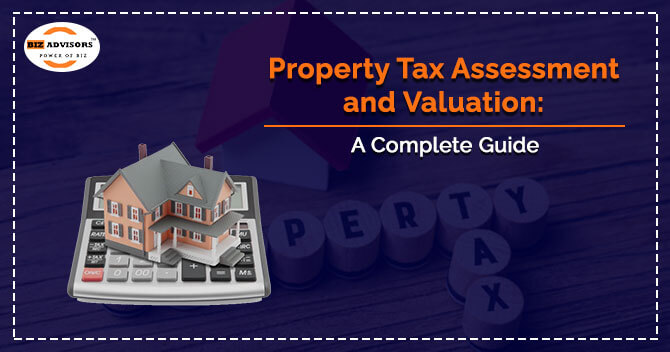Property tax assessment and valuation are integral components of the local taxation system, playing a crucial role in generating revenue for municipalities and governing bodies. Assessment refers to the process of determining the value of a property, typically real estate, for taxation purposes. Valuation, on the other hand, pertains to assigning a monetary worth to a property based on factors such as its location, size, condition, and comparable sales in the vicinity.
Assessment methodologies can vary, but they generally involve assessing the market value of a property. This market value represents the estimated price a property would fetch if sold under normal market conditions.
Property taxes are a crucial source of revenue for local governments, funding essential public services such as schools, roads, and emergency services. The process of property tax assessment and valuation forms the backbone of this revenue generation. Property owners, as well as potential buyers and investors, benefit from understanding how these processes work, as they directly impact the financial responsibilities associated with property ownership.
Property Tax Assessment and Valuation
Property tax assessment and valuation play a pivotal role in maintaining a fair and equitable tax system. Their importance lies in the fact that they determine the amount of property taxes property owners are required to pay. Accurate assessment ensures that the tax burden is distributed fairly among property owners based on the value of their properties. Additionally, property tax revenue serves as a critical source of funding for local governments to provide essential public services and infrastructure development.
Methods of Property Valuation
There are several methods used to value properties for tax assessment purposes. The choice of method often depends on the type of property, its location, and the available resources. The three primary approaches to property valuation are:
- Market Approach: This approach estimates a property’s value by comparing it to similar properties that have recently been sold in the same or similar neighborhoods. These comparable sales provide a basis for determining the property’s market value. Adjustments are made for differences in size, condition, and features.
- Income Approach: Typically used for commercial properties, the income approach estimates value based on the income the property generates. This method considers factors such as rental income, operating expenses, and prevailing capitalization rates in the market.
- Cost Approach: The cost approach calculates a property’s value by estimating the cost of replacing the property’s structures, minus depreciation, and adding the value of the land. This method is particularly useful when dealing with unique or specialized properties.
Property Tax Assessment Process
The property tax assessment process involves a series of steps to determine a property’s value for taxation purposes. While the specifics may vary by jurisdiction, the general process includes:
- Property Inspection: Assessors conduct on-site inspections to gather information about the property’s size, condition, features, and improvements. This information helps determine its value accurately.
- Data Analysis: Assessors analyze recent sales of similar properties, local real estate trends, and other relevant market data to determine the property’s market value.
- Application of Valuation Methods: Depending on the property type and available data, assessors apply one or more valuation methods (market, income, or cost approach) to estimate the property’s value.
- Calculation of Assessed Value: Once the property’s value is determined, assessors apply an assessment ratio, which is a percentage of the property’s market value. This ratio accounts for any limitations or exemptions that apply to the property.
- Notification of Assessment: Property owners receive a notice detailing the assessed value of their property, allowing them to review the assessment and raise any concerns or disputes.
- Appeals Process: Property owners have the right to appeal the assessed value if they believe it is inaccurate. The appeals process typically involves presenting evidence of comparable sales, property condition, or other factors that might affect the property’s value.
Challenges and Considerations
Property tax assessment and valuation are not without challenges. Following are the certain challenges and considerations in Property Tax Assessment and Valuation.
Data Accuracy: Accurate assessment relies on reliable data about property characteristics, recent sales, and market trends. Inaccurate or outdated information can lead to incorrect valuations.
- Rapidly Changing Markets: Real estate markets can experience rapid fluctuations, making it challenging to determine accurate property values that reflect current market conditions.
- Subjectivity: While there are established valuation methods, some degree of subjectivity can still be involved, especially when making adjustments for property differences.
- Equity Concerns: Ensuring that property taxes are distributed equitably among different property owners and neighborhoods is a constant challenge, as property values and economic conditions can vary significantly.
Implications for Property Owners
Understanding property tax[1] assessment and valuation is essential for property owners, as it directly impacts their financial responsibilities. Here are some key implications:
- Tax Liability: The assessed value of a property influences the amount of property taxes an owner is required to pay. Higher assessments result in higher taxes.
- Budget Planning: Property owners need to include property taxes in their financial planning, as they are recurring expenses that can vary from year to year.
- Investment Decisions: Buyers and investors consider property taxes when evaluating potential real estate purchases. A property with high taxes might be less attractive even if the purchase price is reasonable.
- Property Improvements: Renovations and improvements can lead to higher property assessments, potentially increasing tax liability. However, such improvements can also enhance the property’s value and appeal.
Conclusion
Property tax assessment and valuation are vital components of the real estate landscape, ensuring a fair distribution of tax burdens and providing funding for essential public services. By understanding the methods, processes, and implications of property valuation, property owners and investors can make informed decisions and navigate the world of property ownership more effectively. While challenges persist, ongoing efforts to improve data accuracy, objectivity, and equity continue to shape property tax systems, benefiting both governments and property owners alike.
Our legal luminaries at BizAvisors.io provide a strong support system in the context of understanding the framework of Property Tax Assessment and Valuation. You can freely get in touch with our legal consultants at BizAdvisors.io to know more about Property Tax Assessment and Valuation.
Read our article:All You Need to Know About NBFC Takeover
 9559179325
9559179325 9559179325
9559179325





